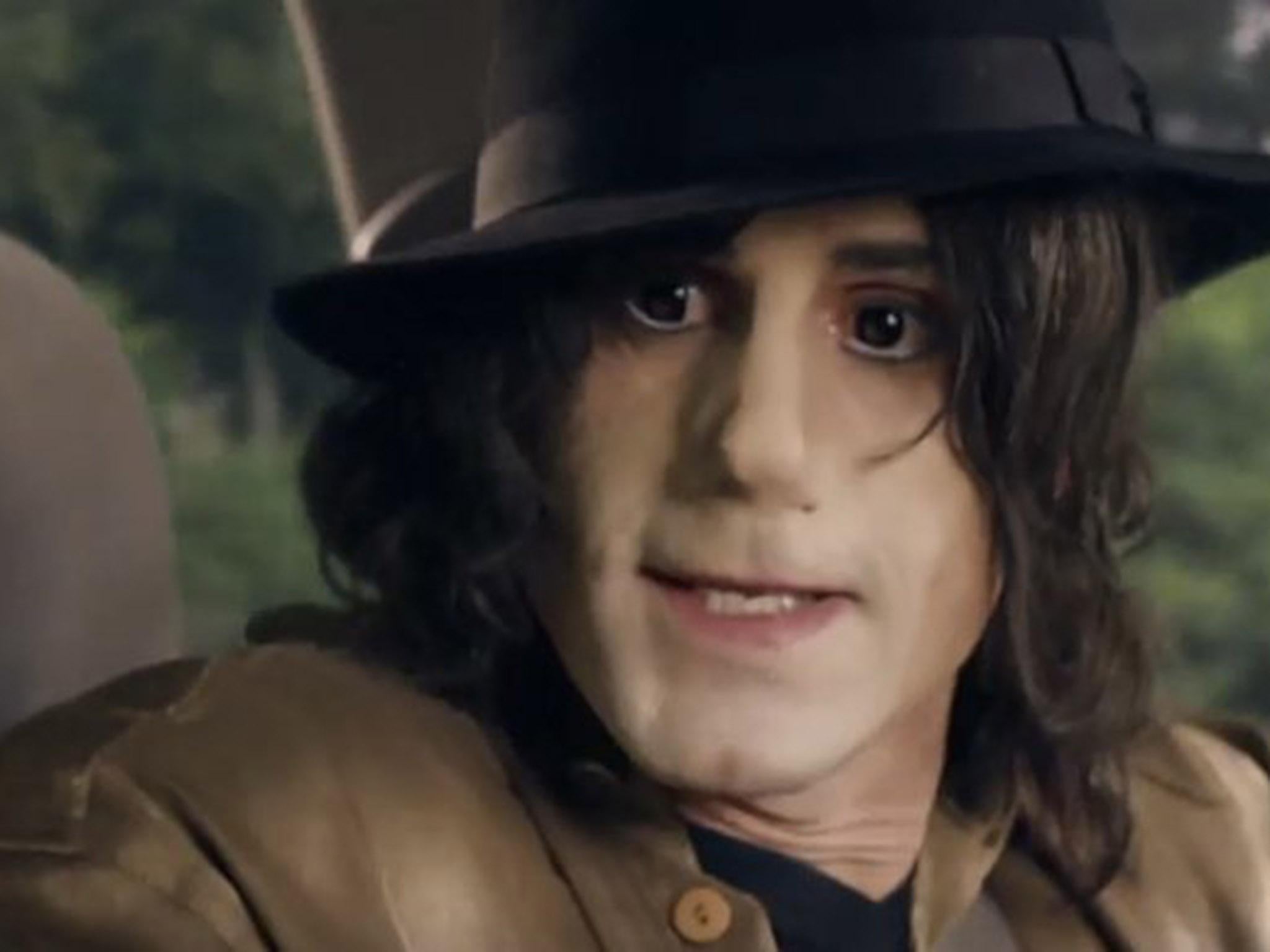Casting a white man to play Michael Jackson in 'Urban Myths' is blackface, whether he identified as white or not
Being white is an exclusive and privileged club. One has to do more than lighten one’s skin to be granted membership

I recoiled when I saw the trailer for the episode of Urban Myths, the Sky Arts comedy, in which Joseph Fiennes plays Michael Jackson. I knew it was coming, as the casting was announced a year ago. Like a ship heading for the rocks, on a sea of blind denial, the actor and production team ignored the barrage of criticism. It is a ludicrous portrayal, and the casting of Fiennes is the only joke in this comedy.
The ship hit the rocks, thankfully, and the programme has now been cancelled, a decision taken mainly due to objections from the Jackson family. I don’t know how Sky thought it could turn the clock back on progress in diversity and equal rights in the arts by getting Fiennes to do blackface.
Fiennes said of Jackson: “He definitely had a pigmentation issue and that’s something I do believe, so he was probably closer to my colour than his original colour... It’s not in any way malicious, it’s actually endearing.” This shows such a great degree of ignorance: he clearly didn’t look into the issue at all. His own frame of reference was all he relied on and it took him on a road to a cancelled show.
Yes, blackface is where a white actor puts on make up to look black, and this has been roundly condemned as offensive in today’s world. How could Fiennes and Sky conclude this was acceptable? They have totally ignored high-profile campaigns such as Oscars So White, Lenny Henry on diversity, Idris Elba and the BBC?
One of the legacies of blackface has been the lack of diversity in the entertainment industry at all levels including writing, acting, producing and directing. Although focused on entertainment, it can lead to broader issues of representation, discrimination, and equality which affect everyone in wider society.
That Jackson purportedly lightened his skin doesn't justify this casting decision: he always identified as black, his family argued. And even if he didn’t identify as black, who in the global community would identify him as white? Being black is about living a black experience every day. It can’t be scrubbed off, lightened up: it is a political and social reality.
Being white is an exclusive and privileged club, globally, that one has to do more than lighten one’s skin to be granted membership.
I can almost already hear detractors shouting about “double standards” where black actors have been cast in “white” roles. Indeed, when Noma Dumezweni was cast as Hermione in Harry Potter and the Cursed Child, there was uproar as the character was originally “white”, but JK Rowling had to personally intervene to support the character becoming “black”, following a backlash from some sections of the public.

Crucially, black actors playing traditionally white characters is not understood, and is seen as a double standard: it is not. The writing of roles as “white” is the other side of the same coin. Writing of and promoting to prominence productions dominated by “white” characters is about power and influence. Access to “white” roles by all actors is about redressing this.
Undeniably, some progress has been made in race equality on many fronts, and sadly this progress has led many to think we have reached the nadir of race equality, and anything issues raised must be illusory and without foundation. Anyone with that perspective needs to take a hard look in the mirror, and ask if this is really the best we can do. Race inequality has not been eradicated, it has just been glossed over to such an extent the conversations are dwindling, while people of all backgrounds are still dying because of this issue.
Although one of Jackson’s most popular hits has the line “it doesn’t matter if you’re black or white”, he wouldn’t apply it to the casting of a white actor to play him but to refer to diversity in relationships. Productions featuring blackface have no place in today’s arts and must not be brought back from the dead.
Join our commenting forum
Join thought-provoking conversations, follow other Independent readers and see their replies
Comments
Bookmark popover
Removed from bookmarks